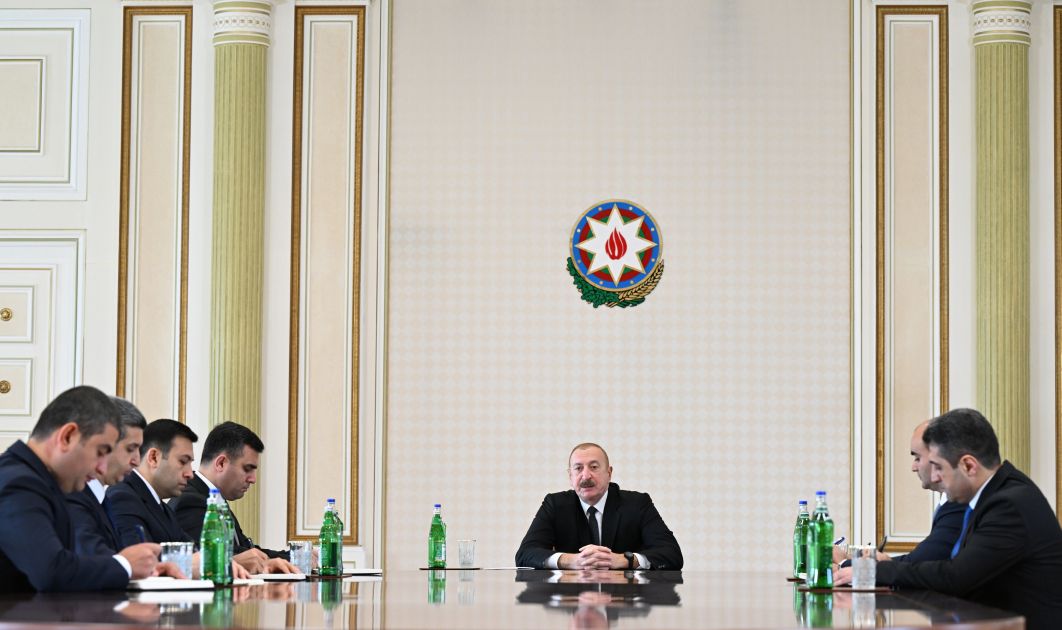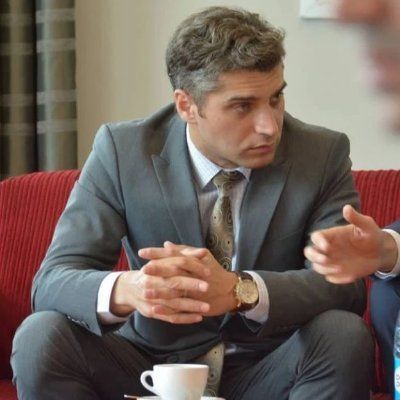President Aliyev’s vision for balanced progress and modern infrastructure

State policy is much like human anatomy: just as the inner and outer workings of a person are inseparable, so too are domestic and foreign policies bound together in harmony. Very few countries can successfully strike the right balance between efficient governance at home and effective diplomacy abroad. One such nation is Azerbaijan, a country that bridges East and West, North and South, and has in recent years emerged as one of the most respected and recognised states of the South Caucasus.
It must be acknowledged that the dynamic development of Azerbaijan’s economy and infrastructure has gathered remarkable pace over the past fifteen years. In line with international economic demands, the country has seen rapid growth in oil and gas revenues, and in a short span of time, has managed to keep pace with global trends of progress. Taking into account that Azerbaijan had not yet restored full control over 20 per cent of its territories, its growing economic potential and well-devised economic strategy were clear signs of brighter prospects ahead.
The implementation of a carefully thought-out economic policy, the expansion of state support for entrepreneurship, the assurance of competitiveness, and comprehensive reforms formed the backbone of economic diversification. Yet despite all these initiatives, there was still much ground to cover before the ambitious goals set before the nation could be fully achieved.
Thanks to President Ilham Aliyev’s foresight and astute diplomacy, Azerbaijan has regained its sovereignty and, through a well-calibrated domestic policy, has become a model state in the Caucasus region. The modernisation of governance structures, both in Baku and the regions, alongside successful projects in urban planning, construction, and public services, has made Azerbaijan a reference point for other nations.
By virtue of Presidential Decree No. 685 signed on 13 July 2012, the State Agency for Public Service and Social Innovations under the President of the Republic of Azerbaijan was established, encompassing the now-renowned “ASAN Service” centres. Likewise, under Decree No. 229 of 9 August 2018, the Sustainable and Operational Social Security Agency (DOST Agency) was founded, marking a pioneering step in improving the welfare of citizens.
All these initiatives have served one key purpose: to ensure that today’s Azerbaijani citizen is no longer at the mercy of outdated bureaucratic obstacles or misunderstandings between officials and the public, the remnants of a bygone era.
It is an undeniable fact that President Ilham Aliyev has consistently paid close attention not only to issues in the capital but also to the challenges faced by citizens across the regions, regularly issuing instructions to local executive authorities and administrative bodies to address them.
It is no coincidence that President Ilham Aliyev recently held a meeting in Nakhchivan with newly appointed regional executives and the Presidential Representative. This meeting was, in every sense, a reflection of Azerbaijan’s rapid progress, a proof that the country’s development has extended well beyond the capital, displaying a balanced growth model and a truly nationwide system of modern governance.
In fact, this was the vision of the Azerbaijani President, the vision that rests on three interconnected pillars, including infrastructure, transparency, and balanced growth, that are forming the foundation of a modern, resilient, and forward-looking Azerbaijan.
Perhaps we have spoken too little about the work accomplished over the past 15 years. In addition to that, it should be underlined that at the heart of this progress is the President’s unwavering commitment to infrastructure transformation. Over the past two decades, Azerbaijan’s highways, energy systems, and regional facilities have undergone unprecedented modernisation. Roads and intercity highways that once lagged behind modern standards now serve as lifelines for trade, tourism, and mobility. The President has ensured that the same quality and modernity found in Baku’s infrastructure are mirrored across the country, from Goygol to Nakhchivan, from Kurdamir to Balakan. The completion of key regional road projects has connected previously isolated areas, fuelling economic activity and improving the quality of life for local residents.
Equally significant is Azerbaijan’s success in developing sustainable and reliable energy infrastructure. The country’s steady expansion of its electricity grid, rural electrification, and renewable energy initiatives demonstrates a forward-thinking approach that aligns with global green transformation trends. Through investment in solar and wind power projects, Azerbaijan is reducing its dependence on traditional energy sources while simultaneously contributing to regional energy security. This dual focus on energy efficiency and sustainability underscores the government’s long-term commitment to an environmentally conscious growth model.
Water supply, irrigation, and healthcare infrastructure have also seen remarkable progress. The establishment of modern hospitals and the improvement of water management systems have turned regional centres into thriving communities that attract investment and talent. These achievements are not isolated events but rather components of a carefully designed state policy that prioritises balanced regional development. The construction of new schools, hospitals, and sports facilities illustrates how public investment directly enhances social welfare and rural revitalisation.
President Ilham Aliyev’s approach to governance, in a nutshell, reflects a broader understanding that sustainable infrastructure must be matched with strong, accountable leadership. His clear message to local executives to act with humility, transparency, and moral integrity speaks to the government’s commitment to ethical governance. The country’s anti-corruption measures and administrative reforms have not only strengthened public confidence but also encouraged fair competition and innovation within the private sector. By fostering a culture of accountability, Azerbaijan is building institutions capable of supporting its long-term economic ambitions.
Ultimately, President Ilham Aliyev’s development philosophy combines the pragmatism of infrastructure policy with the moral clarity of public service. His consistent call for local leaders to “live with people’s concerns” reflects a deeply human understanding of governance that is rooted in service rather than authority. By visiting remote villages, listening to citizens, and ensuring that state resources reach every corner of the nation, Azerbaijan’s leadership sets a rare example in regional governance.
Today, Azerbaijan, a country that has successfully blended economic modernisation with social progress and environmental consciousness, stands as a model of balanced development in the South Caucasus. Under President Ilham Aliyev’s guidance, the nation’s infrastructure is not only connecting cities but also uniting people around a shared vision of prosperity, dignity, and sustainable growth.
Here we are to serve you with news right now. It does not cost much, but worth your attention.
Choose to support open, independent, quality journalism and subscribe on a monthly basis.
By subscribing to our online newspaper, you can have full digital access to all news, analysis, and much more.
You can also follow AzerNEWS on Twitter @AzerNewsAz or Facebook @AzerNewsNewspaper
Thank you!

